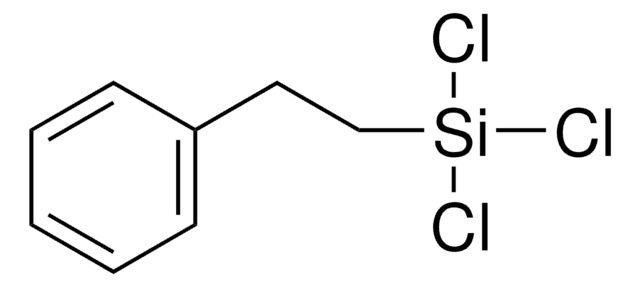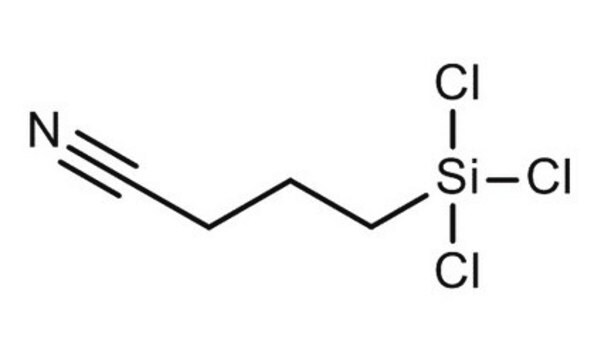235725
Trichloro(octyl)silane
97%
Synonyme(s) :
Octyltrichlorosilane
About This Item
Produits recommandés
Densité de vapeur
>1 (vs air)
Pureté
97%
Forme
liquid
Indice de réfraction
n20/D 1.447 (lit.)
Point d'ébullition
233 °C/731 mmHg (lit.)
Densité
1.07 g/mL at 25 °C (lit.)
Chaîne SMILES
CCCCCCCC[Si](Cl)(Cl)Cl
InChI
1S/C8H17Cl3Si/c1-2-3-4-5-6-7-8-12(9,10)11/h2-8H2,1H3
Clé InChI
RCHUVCPBWWSUMC-UHFFFAOYSA-N
Vous recherchez des produits similaires ? Visite Guide de comparaison des produits
Description générale
Application
Mention d'avertissement
Danger
Mentions de danger
Classification des risques
Eye Dam. 1 - Skin Corr. 1B
Risques supp
Code de la classe de stockage
8A - Combustible corrosive hazardous materials
Classe de danger pour l'eau (WGK)
WGK 1
Point d'éclair (°F)
185.0 °F - closed cup
Point d'éclair (°C)
85 °C - closed cup
Équipement de protection individuelle
Faceshields, Gloves, Goggles, type ABEK (EN14387) respirator filter
Certificats d'analyse (COA)
Recherchez un Certificats d'analyse (COA) en saisissant le numéro de lot du produit. Les numéros de lot figurent sur l'étiquette du produit après les mots "Lot" ou "Batch".
Déjà en possession de ce produit ?
Retrouvez la documentation relative aux produits que vous avez récemment achetés dans la Bibliothèque de documents.
Notre équipe de scientifiques dispose d'une expérience dans tous les secteurs de la recherche, notamment en sciences de la vie, science des matériaux, synthèse chimique, chromatographie, analyse et dans de nombreux autres domaines..
Contacter notre Service technique









